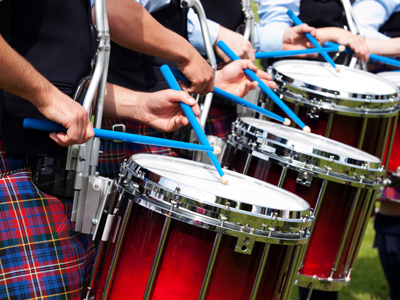
Punctuation (Commas to Separate Clauses) 01
Commas act as a "pause for breath" in English and help give structure to sentences. Use commas to separate clauses from the rest of the sentence. Clauses which appear at the beginning of a sentence should be followed by a comma, for example: "When I phoned him, he read me his shopping list." If we were to reorder that sentence, the comma would no longer be necessary: "He read me his shopping list when I phoned him." These types of clauses are known as subordinate or dependent clauses and often begin with words such as "although", "while", "when" and "despite", among many other examples.
Sometimes clauses or phrases appear in the middle of a sentence and then a pair of bracketing commas is necessary, for instance: "The rain, which had poured incessantly since Monday, stopped without warning and the sun shone brilliantly." As you can see, the basic sentence would be "The rain stopped without warning and the sun shone brilliantly." By using a pair of bracketing commas, you can add extra information in a way that makes sense to your reader.
Practise your punctuation skills with this quiz on commas.
When I telephoned him he read me his shopping list.
When the bell rang the pupils left the school quickly.
Grey clouds now filling the sky we decided to move on.
While the choir rehearsed I listened to the singing.
The player who joined the club today won the game.
Although I hit the ball hard I was beaten by him.
When I have practised consistently I win games too.
The black dog which had brown ears caught the ball.
The tall man who wore spectacles dropped the ball.
When I looked out of the window earlier it was sunny.
Ready for more?
not all...
quizzers. Try to win a coveted spot on our Hall of Fame Page.







